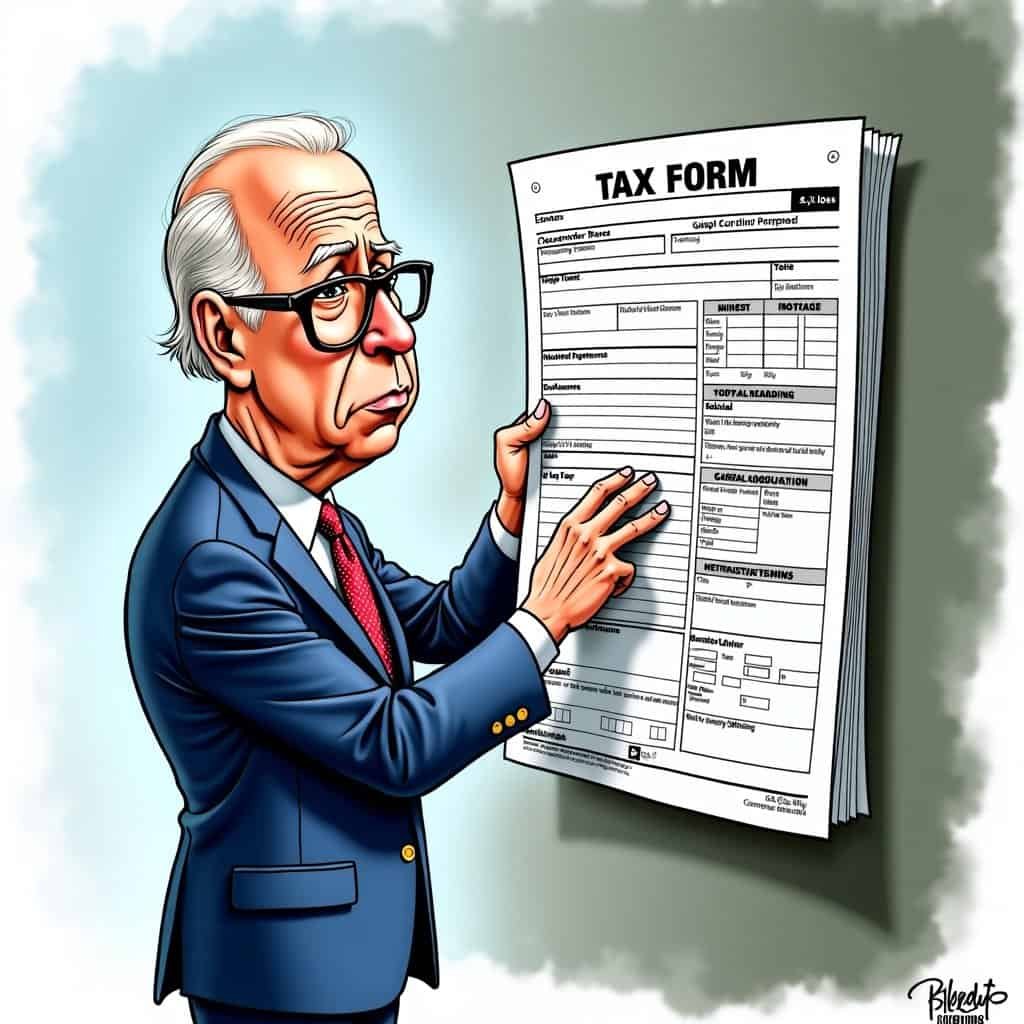Can we pause for a moment and appreciate William F. Buckley Jr.? The man had a way with words that could make the English language blush. Let’s talk about one of his favorite targets: progressive taxation. Ah, progressive taxation – the financial equivalent of squeezing blood from a stone and then wondering why the stone isn’t happy about it.
Now, if you ask most Republicans, they’d tell you that progressive taxation is about as effective as a chocolate teapot. And Buckley? Oh, he had a particular dislike for it. To him, this wasn’t just a bad idea, it was a downright laughable one.
Imagine this: A group of progressives huddled around a table, brainstorming how to “fix” society. Someone pipes up, “Hey, let’s tax the rich more and everyone else less. That’ll solve everything!” It’s almost endearing, if not for the economic mess that follows. It’s like saying, “Let’s make the successful folks jump through hoops while we pat everyone else on the back for simply existing.” Participation trophies, anyone?
The Conservative View on Economic Growth
Buckley championed the conservative idea that lower taxes lead to economic growth. When people keep more of their hard-earned money, they tend to do productive things with it. Things like starting businesses, hiring employees, or investing in new technologies. You know, the stuff that keeps the economy running smoothly.
The Impact of Lower Taxes
- Increased business investments
- Job creation
- Technological advancements
- Economic growth
Picture telling a successful entrepreneur, “Hey, you did great! Now, hand over a huge chunk of your profit so we can redistribute it.” That’s like congratulating a marathon runner by making them carry everyone else across the finish line. Great for the carried, not so much for the runner.
The Progressive Taxation Fallacy
Buckley probably chuckled at the thought of progressives believing their taxation method would magically eliminate inequality. But in reality? Higher taxes on the wealthy often lead to job cuts, reduced investments, and a sluggish economy. It’s like trying to cure a headache by stubbing your toe. Sure, you might forget about the headache for a while, but you’ve got a whole new problem now.
In Buckley’s eyes, and in the eyes of many conservatives, progressive taxation is a road paved with good intentions leading straight to an economic dead end. Let’s reconsider that balance between allowing individuals to prosper and ensuring the government isn’t overstepping its bounds.
Buckley’s Wit and Wisdom
Buckley’s humor didn’t just entertain; it educated. He pointed out the absurdity of penalizing success through higher taxes, using wit to drive home his point. For instance, he once joked that he’d sooner trust a chicken with a toothpick than someone who advocated for progressive taxation. Why? Because both were likely to end in disaster!
Buckley’s Memorable Quotes
“I’d rather entrust the government of the United States to the first 400 people listed in the Boston telephone directory than to the faculty of Harvard University.”
“Liberals claim to want to give a hearing to other views, but then are shocked and offended to discover that there are other views.”
Conservative Values and Personal Responsibility
Conservative values, as Buckley promoted, champion personal responsibility and the free market. The idea is that when people keep more of what they earn, they are motivated to work harder and smarter. This isn’t just about fairness; it’s about creating an environment where everyone can succeed based on their efforts, rather than being held back by government overreach.
For those who might have missed it, history offers plenty of examples where lower taxes led to economic booms. Think Ronald Reagan’s tax cuts in the 1980s. The resulting economic growth wasn’t a fluke; it was a classic case of letting the market work its magic.
A Conservative Approach to Social Programs
Of course, progressives love to argue that without higher taxes on the rich, social programs will crumble, and the sky will fall. But here’s the thing: Conservatives aren’t against social programs. We just believe in smart ones. Ones that empower individuals rather than make them dependent on the state. It’s the difference between teaching someone to fish and simply handing them a fish – all while taxing the fisherman until he considers early retirement!
So the next time someone suggests progressive taxation as the ultimate solution, channel your inner William F. Buckley Jr. Smile warmly, maybe chuckle, and gently remind them that penalizing success is no way to foster prosperity. And if that doesn’t work, you can always introduce them to a chicken with a toothpick.
Table of Contents
- The Conservative View on Economic Growth
- The Progressive Taxation Fallacy
- Buckley’s Wit and Wisdom
- Conservative Values and Personal Responsibility
- A Conservative Approach to Social Programs






